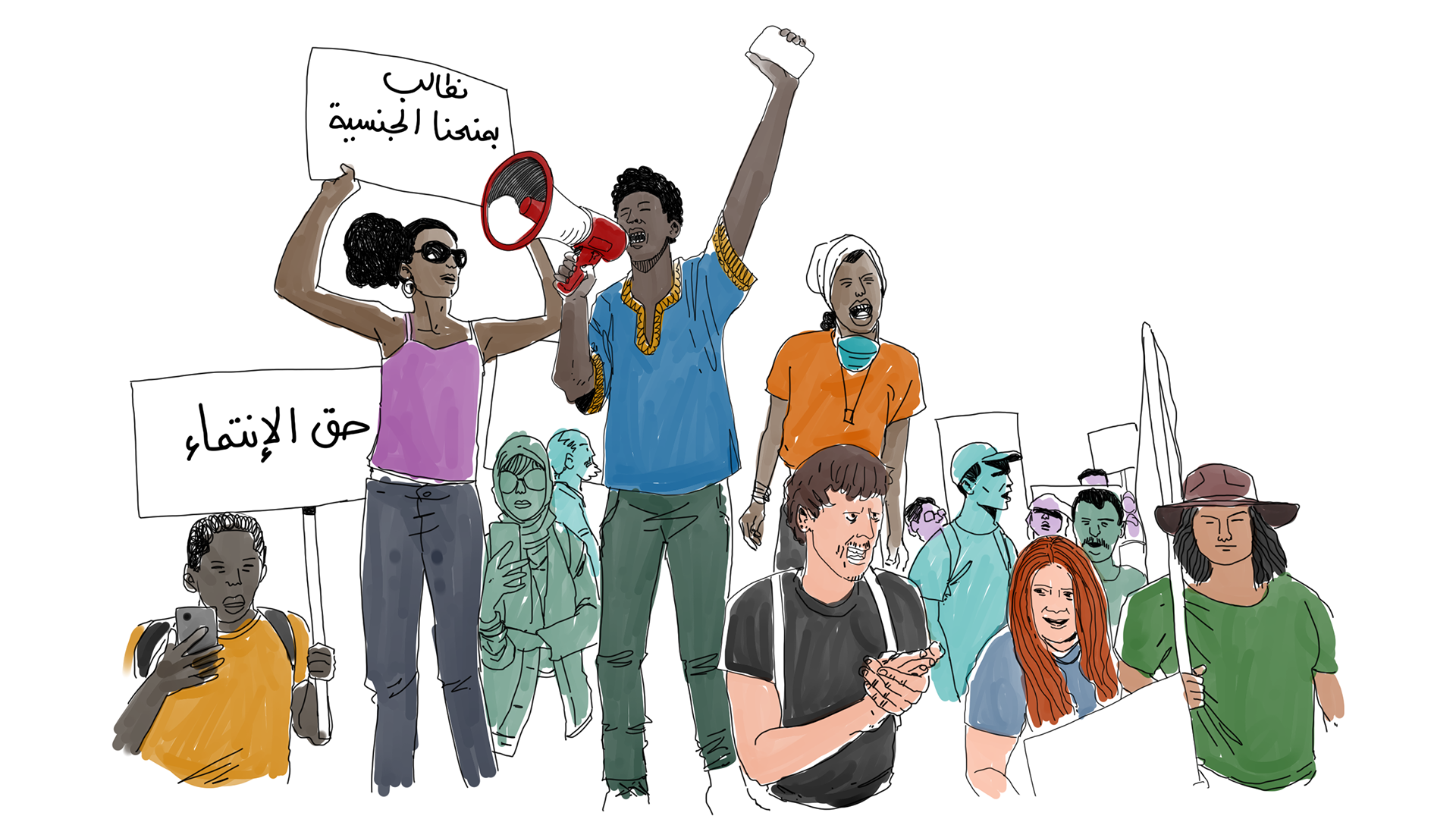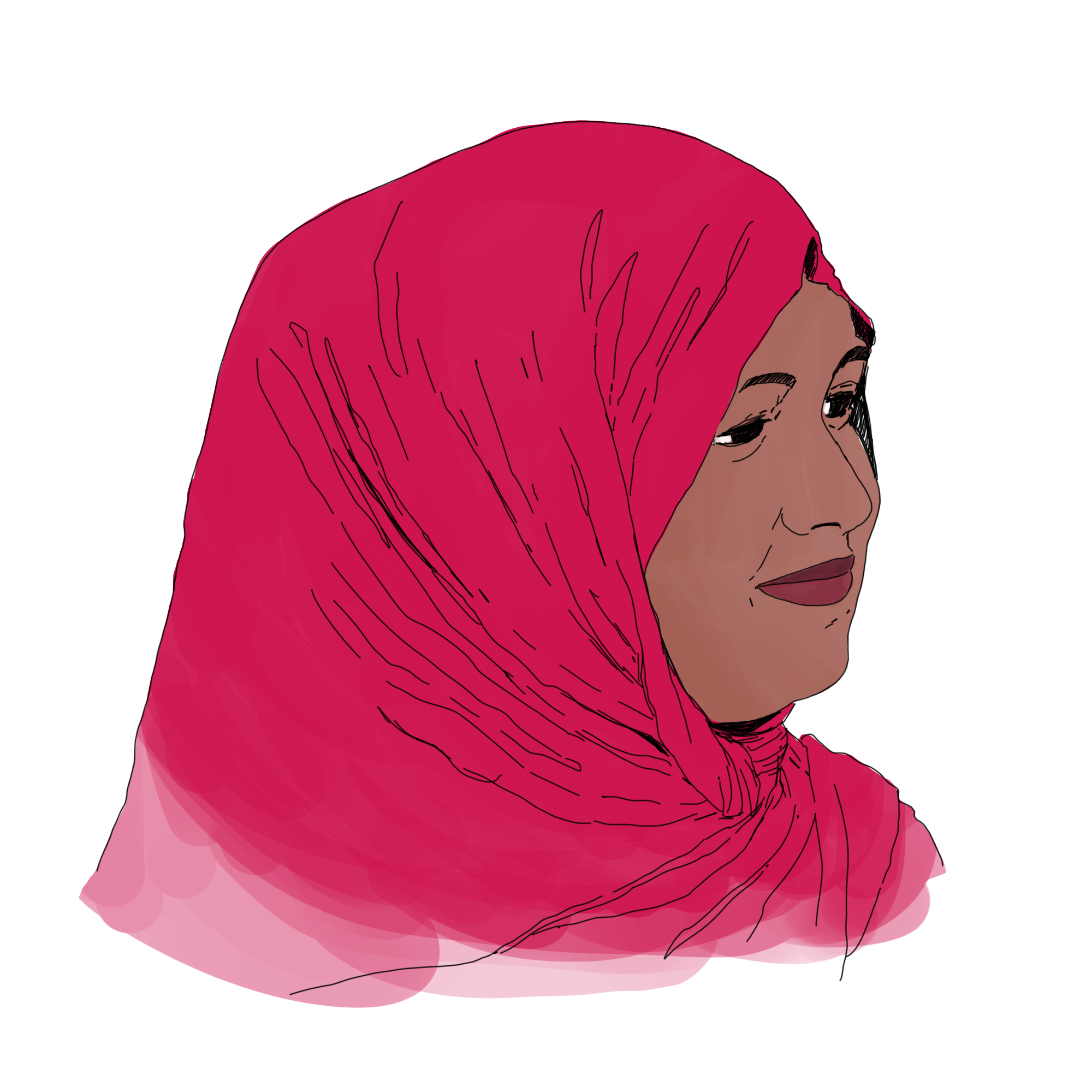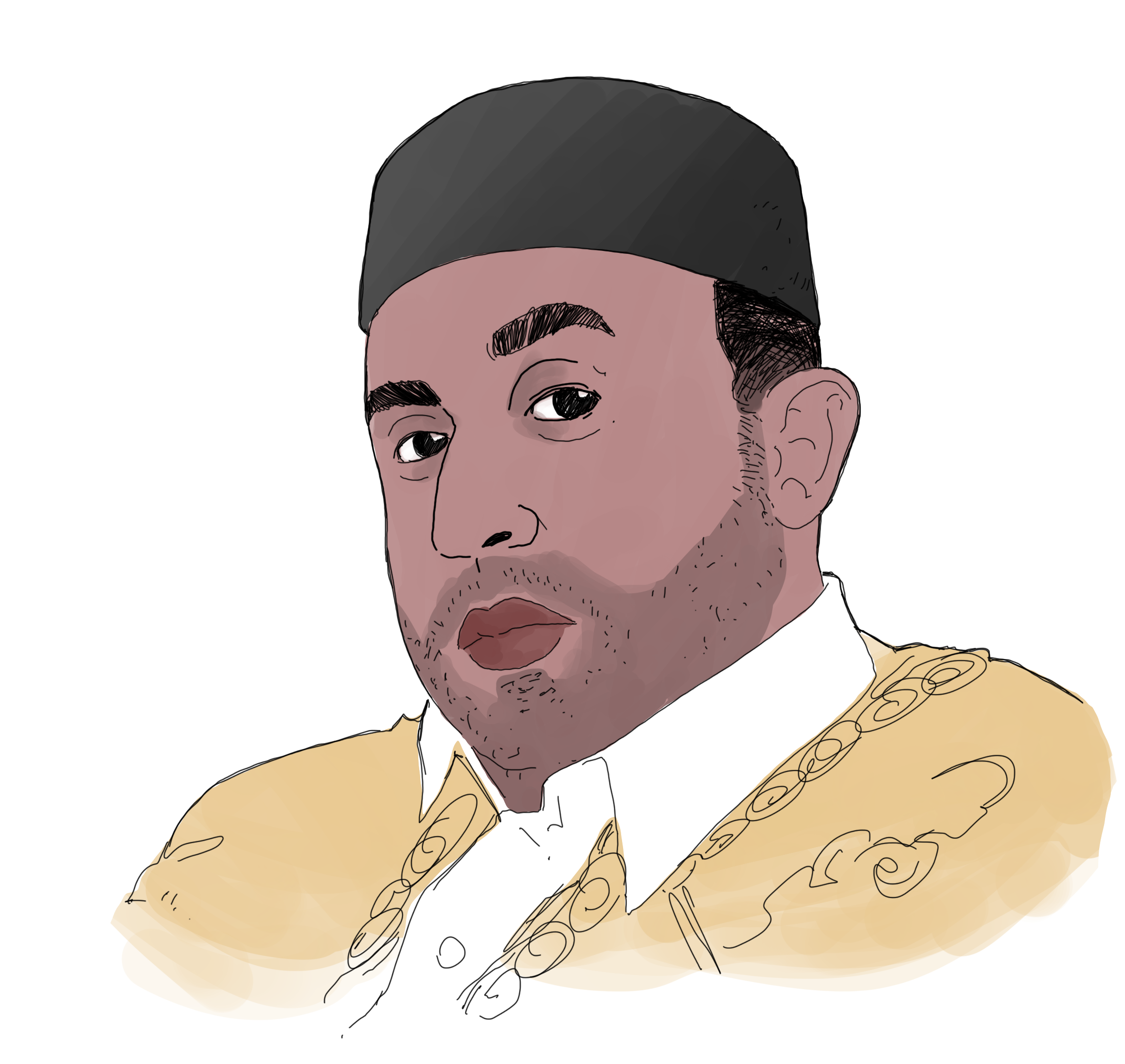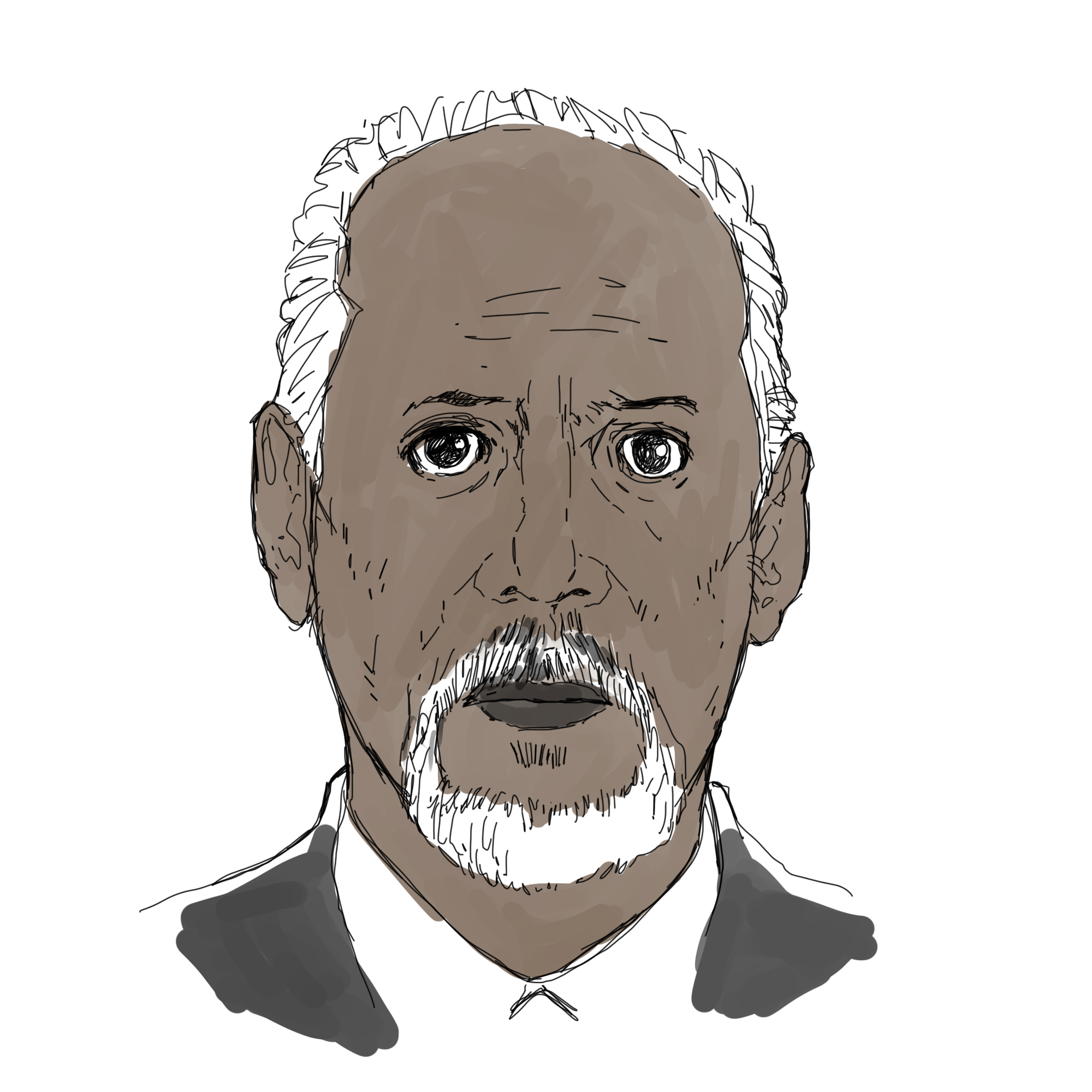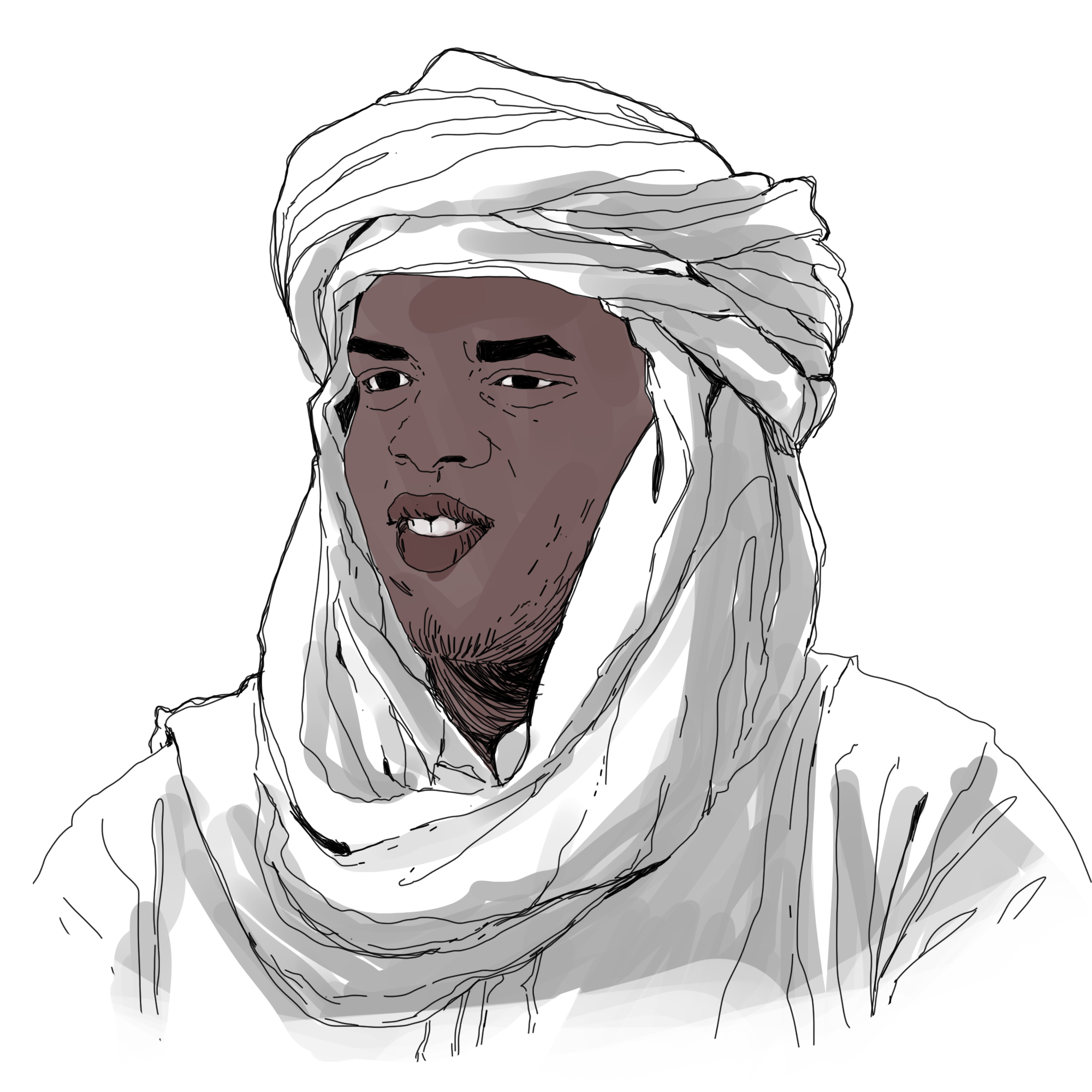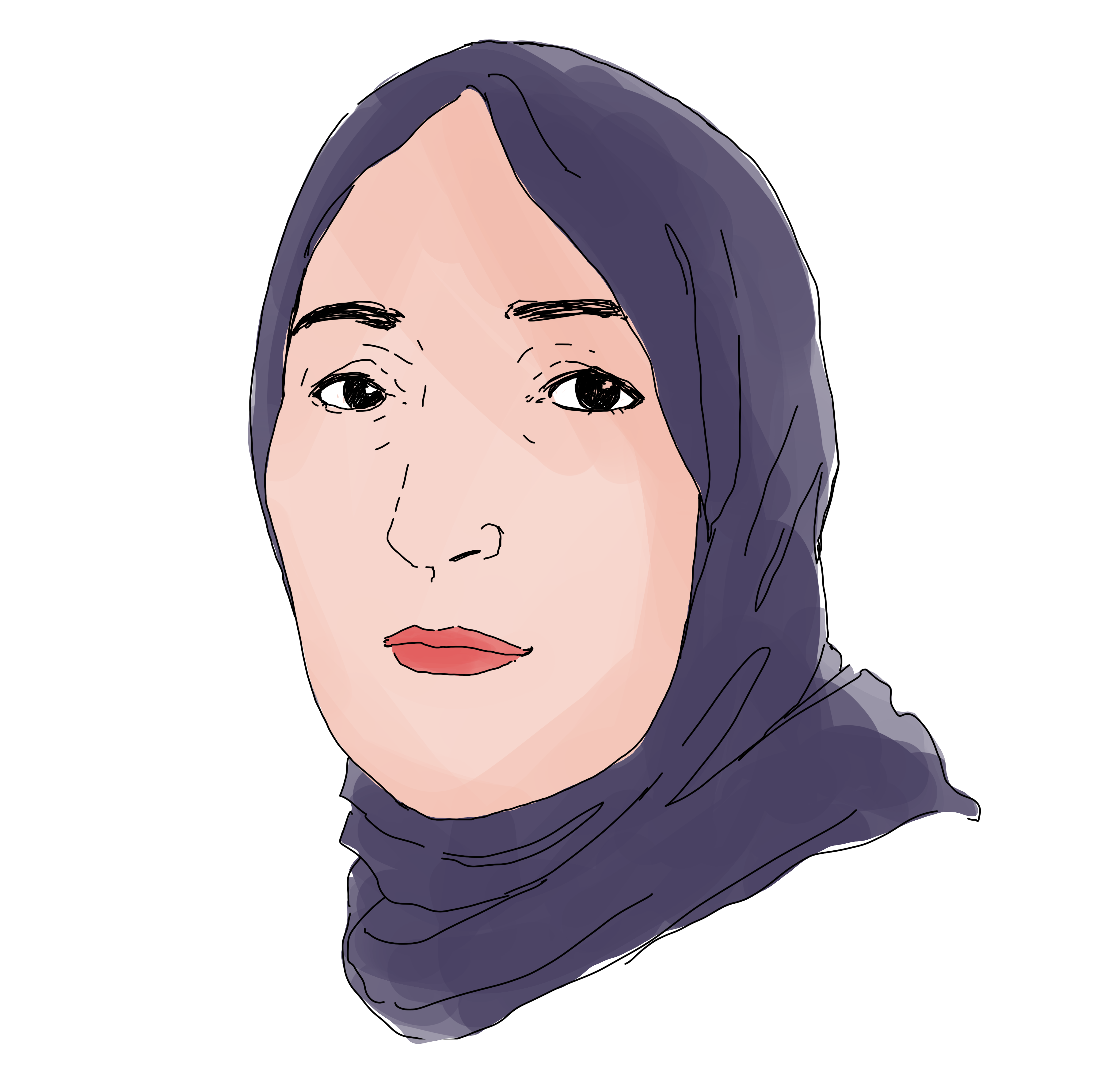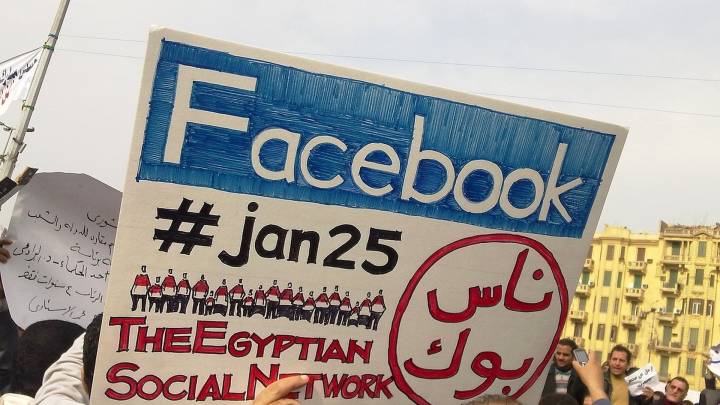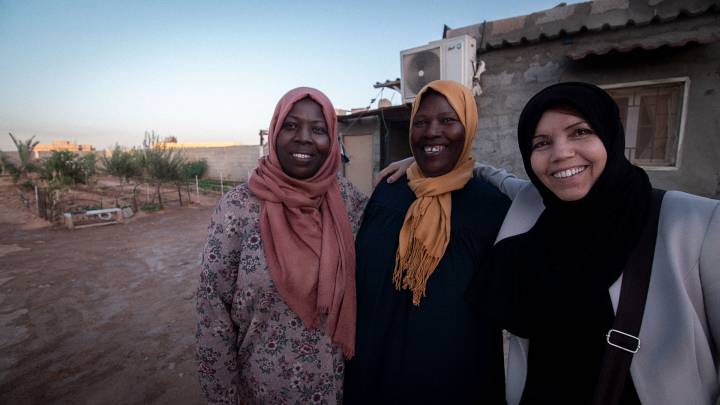Tens of thousands of stateless people live in Libya. Successive governments have been holding out the prospect of citizenship to them for decades - and complicate everything ever more.
The family of Yousef Abdulkareem, a 54-year-old teacher, has its roots in the Kufra district in Worouy, a small oasis in Libya’s far south, right at the border with Chad. His father used to tend to his flock in these remote border lands for certain months of the year.
Although the area lies officially within Libyan territory it flew completely under the radar of census-takers in both 1954 and 1964, which is why Yousef’s family was not registered. “The census committees never reached our areas, so we failed to be registered as citizens”, remembers Yousef.
At the time, census-takers covered more central areas in southern Libya, but skipped remote places like the southern wadis in Kufra and Uweinat. A lack of information on whether anyone actually lived there and where to find them certainly made their job difficult.
Nevertheless, Yousef’s family succeeded in having their names added to the district registry of Kufra in 1975, only for the public prosecutor to suspend this registry two years later, when it included 43 families. And while this decision was revoked only a week later, the local office of the Civil Registry Authority refused to add the families to its citizen records.
Unwilling to give up, Youssef filed a lawsuit against the Civil Registry, which he won. The court’s decision, however, was met yet again with reluctance from the authorities in Kufra. But Yousef refuses to give up: “I will not stop standing up for my rights and justice.”
Up to 60.000 people in Libya are stateless
More than ten million people around the world are stateless or struggle to obtain any citizenship, according to UNHCR. Some states or governments purposely exclude segments of their population from obtaining nationality – for different reasons, such as ethnic and religious discrimination, interstate conflicts, recent shifts of borders or failure to record all resident population when gaining independence.
In Libya, as well, many have lost their Libyan citizenship or never had it, despite living here all their lives. While there are no official figures on stateless persons in Libya, many victim accounts suggest that there are between 40,000 and 60,000 of them.
One of them is Khadeeja Aendedy (35), an architect and women’s representative in the Higher Council of the Tuareg Libya, who does not enjoy the full rights of a Libyan citizen. She is still classified as a “temporary citizen” by her country.
A temporary registry was established in 1971 by the Minister of the Interior and the local government, as a sort of waiting list for those whose status as citizens had first to be verified. It was also called the “returnee registry”, as it basically included the names of those who had returned from abroad after the census and establishment of the civil registry, but had not completed the necessary legal and bureaucratic procedures to be granted nationality, like Khadeeja’s family.
A Libyan by birth, Khadeeja says she is heartbroken over the fact that she is not entitled to all the rights and benefits of a citizen. Since she and her family are on the temporary registry, they have no national identity numbers: “We are Libyans and should have the same rights as everyone else. But the state treats us like second-class citizens.”
The so-called ‘administrative number’ was introduced in 2013, after a group of Tuareg in southwest Libya shut down the Al-Sharara oil field in protest, in order to exert pressure on the government. They demanded that their legal procedures be finalised at last and that they be given Libyan citizenship.
In response, the Libyan government issued temporary administrative numbers to facilitate simple tasks such as the payment of salaries. These are inferior to the national identity number, however, and the system continues to restrict its bearers, certain groups of Libyan society, in the most fundamental ways. They still cannot enrol in state schools, get treatment in public hospitals or open a bank account, let alone travel. “They gave us this number to silence us, nothing more”, finds Khadeeja Aendedy
Gaddafi recruited Tuaregs with the promise of citizenship
Khadeeja has a family registration number and all papers required by the Nationality Law in order to obtain citizenship, as do many other Tuaregs on the temporary registry. But her legal procedures have been handed from one government to the next since the days of Muammar al-Gaddafi, alongside empty promises of resolution and citizenship.
Khadeeja believes that racial discrimination against the Tuareg and Tubu – another ethnic group in Libya –, as well as military exploitation of their youth, are the major reasons behind the procrastination. “Employment is out of reach for our youth without a national number. But you don’t need one if you go fight at the front”, summarises Khadeeja.
Gaddafi managed to recruit young Tuaregs for his brigades with the promise of citizenship, but only a small circle within the Khamis Brigade of Gaddafi’s youngest son were eventually given the privilege. Later, after the 2011 revolution, which sparked a series of civil wars, young Tuareg continued to be exploited by armed groups, as several witness accounts confirm. “They are blinding our youth with money to make them fight”, thinks Khadeeja. “They say, what do you want with the national number, come fight with us and take money instead.”
The situation of people who should have benefited from the administrative number became more difficult in the years after its introduction, especially from 2014 onwards. It became impossible to register births (even on the temporary registry) and deaths, or to issue separate family booklets for newlyweds. This meant the new-borns of those on the temporary registry were doomed to lose their nationality.
In August 2018, Mohammed Beltamer, Director of the Civil Registry Authority, wrote to the heads of the local branches requesting that they provide him with an inventory of the family files included on the temporary registry. He claimed in his letter that the “returnee registry” had, unintended by the legislator, transformed from a temporary registration system for those seeking to prove their “Libyan origin” into a permanent alternative to the Civil Registry.
His phrase “Libyan origin” deserves special attention. It is not a phrase found in the Libyan Nationality Law No. 24 of 2010 that states that a person shall be considered Libyan […] if they were a regular resident of Libya on 10 July, 1951 and did not hold a foreign nationality, provided they complied with any of the following conditions: (a) They were born in Libya, (b) They were born outside Libya, provided either of their parents were born therein, (c) They were born outside Libya and resided therein as a regular resident for a period of no less than ten consecutive years prior to 10 July, 1951.
The Law makes it very clear that anyone who resided in Libya before 1951 and had no other nationality is Libyan. In theory, this gives many people in Libya whose status is currently in limbo the right to citizenship. Beltamer’s notion of “Libyan origin” eludes our understanding and invites interpretation and arbitrariness.
“The Civil Registry Authority has no intention of obstructing the process”
We wrote to the Administrative Number Committee, which acts on behalf of the Civil Registry Authority, to inquire about the effectiveness of the system and its benefits for the concerned social groups. We received a brief response from its chair, Tareq Qweder. He describes the difficult circumstances of their work: They have no wiggle room and face many hurdles and serious threats; they are lacking in support and budget from the Authority and the government; all efforts rely on their own initiative; and they are not even entitled to living or danger allowances for working in the south.
All this chaos has been caused, Qweder adds, by those who had applied for the administrative number in more than one office and inflated the case load unnecessarily. This had made the Committee’s mission increasingly difficult: “The Civil Registry Authority has no intention of obstructing the process.” Qweder argues that “this is a matter of National Security and Territorial Integrity for Libya. Therefore, neither the Civil Registry nor the Administrative Number Committee can take people by their word only or grant nationality arbitrarily.” Finally, he concedes that the absence of political will and constitutional laws exacerbates the problem and encumbers the development of a real and permanent solution.
From 1978 until 1987, Libya was at war with Chad over the so-called Aouzou Strip that stretches along their common border. In order to resolve the conflict, the two countries resorted to the International Court of Justice, which ruled in 1994 that Chad should have sovereignty over the land. Libya complied with the verdict. However, two years later the Secretariat of the General People’s Congress issued Circular 13, which abolished all birth registries in the Aouzou Strip and declared its inhabitants, past and present, as henceforth aliens to the Libyan state. Most of them were Tubu.
Pensioner Mohammed Issa is aggrieved by the country’s policies of the last 24 years. Having left Aouzou after the war in 1987, he settled with his family in the south-eastern Kufra basin. When Circular 13 decided the fate of Aouzou’s people, his status changed from Libyan to stateless person. “Although I feel that I belong to Libya and its lands”, says Issa, “the state classifies me as alien, unworthy of its citizenship.”
Mohammed’s sons were born in Kufra before the International Court’s decision in 1994 and the issuance of the notorious circular, and were added to the birth registry of Kufra. Their father’s changing status, nevertheless, was soon reflected in their own treatment by country and people. After the circular, Mohammed tried several times to reclaim his Libyan nationality in court. When he filed a lawsuit in the Court of First Instance in Kufra, the judge verbally informed Mohammed that the Court had no jurisdiction in the matter, but refused to provide any written document of the ruling or proof of his claim.
“The politics towards the Tubu, in general, and the people of Aouzou, in particular, is hostile”, believes Mohammed Issa. He and his family could only obtain passports and national numbers after the 2011 revolution. Although a formal communication by the General Secretary in May that year rescinded the decision to deprive all inhabitants of the Aouzou Strip of their Libyan nationality and ordered that their Libyan identification papers be restored to them, the competent authorities are reluctant to comply.
A vicious rumour
A rumour has been circulating in the country that the people of Aouzou held a referendum on the question of their nationality, with the majority expressing their loyalty to Chad. While the rumour is baseless, it has contributed to a growing stigmatisation of the Tubu and to racist attitudes towards them.
In fact, existing evidence contradicts this malicious slander. On 31 May, 1994, the Libyan commander of the Aouzou military zone sent a report to the commander of Aouzou Sector West confirming that all Libyan inhabitants, apart from one, had left the territory transferred to Chad and moved to neighbouring regions inside Libyan borders. He wrote that these people had been unwilling to live under Chadian authority.
While the Libyan state has taken numerous decisions in favour of the Aouzou-born population, and although they still possess the family booklets and civil registration numbers that were valid until 1996, their situation remains precarious. To this day, they struggle to be recognised as Libyans, and there are few signs that commitments made by the state will be followed up with real measures to redress their legal status.
The Tuareg are also among the ethnic groups most affected by statelessness and vulnerable to racial discrimination and political exploitation in Libya. Among them are people who have returned from years in exile, included those on the temporary registry, as well as desert dwellers and nomads overlooked by census-takers.
Tuareg activist Abubakar Kahty tells us: “Under Gaddafi’s regime, Libyan authorities sought to exploit the Tuareg for the wars and military conspiracies of the late president. In return, they promised them Libyan nationality. When, in 1972, Gaddafi created the Islamic Legion as an instrument of intervention in countries like Ruanda, Chad and Lebanon, he incited the Tuareg and urged them to come from the Sahara to Libya to be part of the “Great Revolutionary Movement of the Sahara Regions”, against the explicit will of a majority of African countries at the Non-Aligned conference in Havana in 1979.”
In his speeches, Gaddafi proclaimed the legitimate right to nationality of the entire Ummah of Tuareg, inside and outside Libya. “This ground – Libya – is the motherland of all Tuareg sultanates. The origins of the Tuareg go back to Libyan lands and we, the Arabs, are their guests”, said Gaddafi in 1980. This fuelled the wish of many to return home. But once they arrived, the tone of the Libyan authorities was quite different, refusing most on the basis of a vaguely defined security clearance.
Gaddafi’s strategy of false promises amplified the problem of Tuareg statelessness, as considerable numbers of the Sahara population arrived in Libya from Algeria, Mali and other countries in the hope of obtaining Libyan papers and finding stability. Their hope has remained a distant dream until today.
Such political instrumentalisation and racism have targeted the Tubu as well, who suffered tremendously under the oppressive measures of the Gaddafi regime. In Tunisia’s capital Tunis, we meet Hassan Kadano, a Tubu human rights activist who speaks with us about the complicated situation of several stateless Tubu groups in their struggle to become Libyan citizens.
Kadano says that those born in the Aouzou Strip were not the only ones facing this dilemma, with many political and social fabrications at work in the country. After Libya lost the war against Chad in 1987, around 70 Tubu families were deprived of their Libyan nationality for no reason. Hassan believes this had to do with accusations of treason against these families’ sons, who had joined the Libyan army but traced their roots back to Chad.
Moreover, after the Kufra uprising in November 2008, when Tubu people took to the streets to demand basic rights, such as to enrol their children in school and renew official documents, they were punished with the revocation of their citizenship. More than 150 people were killed or wounded during the uprising.
Embassies refuse to treat us like Libyans
The plight of statelessness also applies to non-muslim Libyans. Raphael Luzon, President of the Association of Libyan Jews, tells us that since the Jews were forced out of the Kingdom of Libya under Mohammed El Senussi in the wake of the 1967 war with Israel, they too face many obstacles in reclaiming their rights as citizens. “We are Libyans and have lived in Libya for more than 2,000 years, and still governments don’t want to grant us our rights as Libyans. They are just stringing us along”, claims Luzon.
Although the Jews left Libya in possession of passports of the Kingdom of Libya, birth certificates or other papers proving their Libyan nationality, they were unable to renew them after expiry: “There has never been an official decision to withdraw the citizenship of the Jews of Libya. But embassies refused to treat us like Libyans.”
All of Luzon’s attempts to obtain a national identity number or identification papers have failed, even though help has been promised many times, by officials from one government to the next since 2011. Their tenor has stayed the same over the years: It would take time, because the Jewish Libyan issue was a delicate one and the country was unstable.
“If they don’t agree to give us a national identity number before the elections, we will file a complaint with the United Nations against racial discrimination and exclusion of the Jews of Libya and the violation of their right to political participation”, says Luzon and ends the interview emphasising that he is not prepared to waive his civil and political rights as a Libyan citizen, and that he will launch a complaint against the Libyan state should the intentional procrastination of legal procedures and exclusion of the Libyan Jews continue.
The lawyer Ghaliya Bouras is one of the most important supporters of victims of statelessness in Libya. More than 1,600 people have placed their trust in her defence at Libyan courts, in demanding what she describes as “the magical document”. Bouras alleges that the director of the Civil Registry Authority himself causes delays in processing the cases of people who so urgently need to settle their legal status in Libya once and for all. While the number of stateless persons has multiplied, no noticeable progress has been achieved. In fact, statelessness has become hereditary, as she says, which will have dramatic consequences if not resolved soon.
“I have filed a complaint with the General-Secretary against the Director of the Civil Registry Authority, Mohammed Beltamer, as he disrupts the procedures of cases where paperwork is in order”, says Bouras. She thinks the administrative number system only provides a solution to minor problems of the target group, such as ensuring the payment of salaries and concluding marriage contracts, not much more.
In the meantime, they are still deprived of fundamental civil and political rights. She rejects the excuses of the competent authorities that forgery and multiple registrations are to blame for delays, saying there is simply no will to put an end to this problem, while temporary solutions have only increased its complexity.
The research for this article was supported by the Candid Foundation’s journalism grant.
